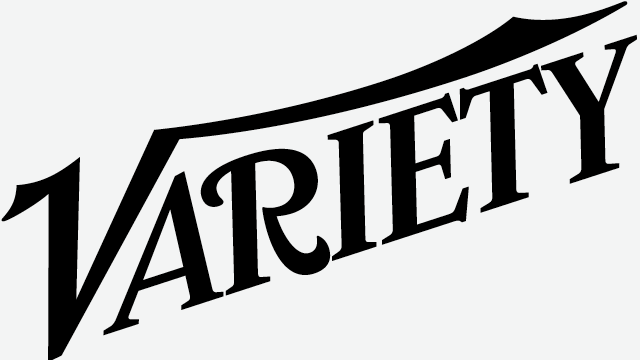L.A. Theater Review: ‘So Long Boulder City’

If you’ve spent any time living in La La Land, you’ve surely been dragged to at least one insufferably earnest one-woman show of the kind that all but crushes Emma Stone’s character, wide-eyed wannabe Mia Dolan, in “La La Land.” It’s one of the gifts of Damien Chazelle’s musical bauble that he spares us the actual content of Mia’s non-equity theater debacle. And it’s the genius of L.A. improv comic Jimmy Fowlie that he’s gone out of his way to imagine what “So Long Boulder City” might have been, treating the opportunity to gently poke fun at the divisive best picture nominee (the movie, not the actress, who comes away unscathed).
In “La La Land,” Mia rents a theater — barely larger than the Lex, where Fowlie’s show is playing — and pours her heart out on stage, but hardly anyone comes, not even her suddenly-successful boyfriend Sebastian (Ryan Gosling). It’s the final straw, after which the would-be actress packs her Prius and heads back to Boulder City. (In a nice touch, one of the chairs in the 64-seat house is reserved for Sebastian, who never shows.)
So, just how bad was the play that forced Mia to quit not only her dreams, but her day job as well? To answer that question, Fowlie, a veteran of the Groundlings comedy troupe, watched “La La Land” ad nauseam, scouring the film for clues both to Mia’s backstory and the kind of show she might have written, presenting a spot-on parody of L.A. solipsism that runs a tight 60 minutes, skipping over the assumed “90 minutes of questions about our relationship” her audience had to endure.
More than likely, in the movie, “Goodbye Boulder City” was a thinly veiled autobiography about a small-town girl named Genevieve (the character identified in her script) who escapes Nevada to travel the world, but Fowlie is wise to treat the show as even more narcissistic than that. If Mia were played by anyone other than Stone, she’d be just another dime-a-dozen actress whose lack of self-awareness wouldn’t be nearly as endearing. Of course, in this particular production, she is played by someone else, and those shortcomings become the joke.
Walking out straight-backed and stiff-shouldered — as Stone herself did — in a white blouse and black pencil skirt, Fowlie’s Mia is a cute, kinda oblivious college drop-out from Boise State who splits an $8,200/month Hancock Park apartment with three white girls (technically, one was played by Japanese-born Sonoya Mizuno in the movie) and works as a barista on the Warner Bros. lot. She parks wherever she pleases and chases after unavailable guys, winning them over with her adorable dance moves.
That’s the fun-lovin’ gal her friends know and love, but the play is her chance to be vulnerable, as Mia recounts her relatively privileged childhood, alludes to problems with drugs and bulimia (“that’s a story for another one-woman show”), and describes the humiliation of being passed over for the college musical (“I wasn’t even in the ensemble, which is the place they put the untalented people with good bodies”).
Surely one of Fowlie’s fellow Groundlings does a better Emma Stone impersonation, but that isn’t really what he’s going for here, offering more of a meta-commentary on a self-involved L.A. actress looking to be discovered. There’s a certain poignancy in the fact that the stunt could bring Fowlie (who’s previously best known for his “Go-Go Boy Interrupted” web series) the kind of attention that Mia so desperately craved. It takes a certain fearlessness to go out and embarrass oneself in front of a crowd, and Fowlie milks the awkwardness, especially in the show’s climactic moment, when Mia calls Sebastian on stage, and then proceeds to perform one half of a choreographed two-person dance routine by herself, trying to hold back the tears to the impossibly upbeat sound of “Electric Boogie.”
It’s the closest thing to a musical number you’ll find in “So Long Boulder City,” which samples bits of the “La La Land” score but otherwise privileges jokes above lyrics — as when Mia announces, “I’d love to share the story with you in a song … but I won’t because I hate singing” (just one of many Amy Schumer-style lines, in which a dramatic pause delays an irreverent twist). It’s all in the delivery, and Fowlie’s comic timing is impeccable, not just with dialogue, but also in two outrageously long costume changes and a sequence in which he takes forever to rearrange the set.
Props glimpsed on stage in the film lend another level of absurdity, as Fowlie invents uses for such strange objects as a top hat, lampshade and globe. He even concocts an elaborate bit to justify the guy Mia overhears backstage asking, “And that whole window thing? What was that?” (though the heckler was probably talking about the Eiffel Tower backdrop). If the goal here is to make real the humiliation merely alluded to in the film, Fowlie and co-writer/director Jordan Black have done so without diminishing Mia’s sense of heartbreak — which just goes to show that amid the absurdity, they’ve actually made us care about the character.
Get more from Variety and Variety411: Follow us on Twitter, Facebook, Newsletter

 Yahoo Movies
Yahoo Movies 
